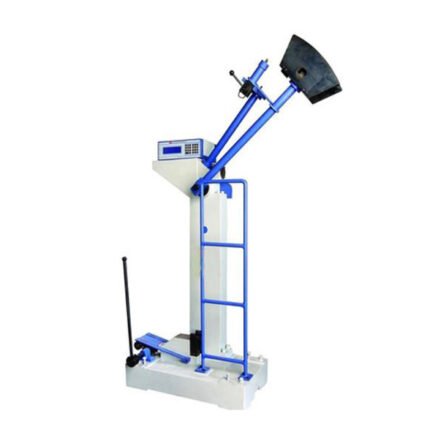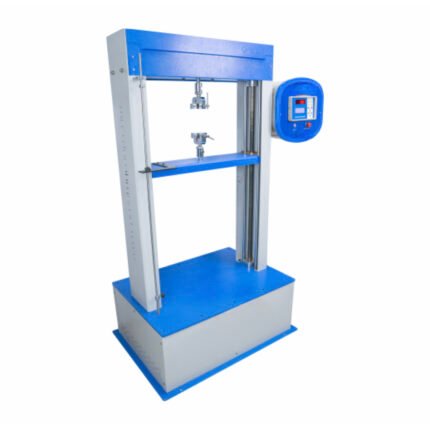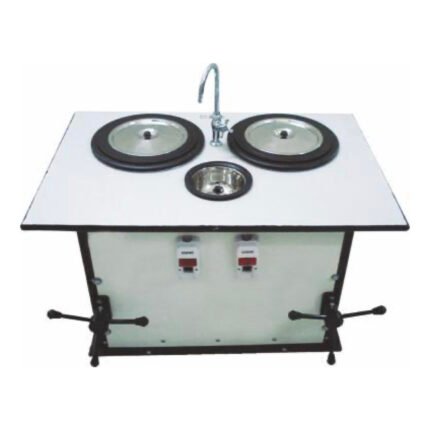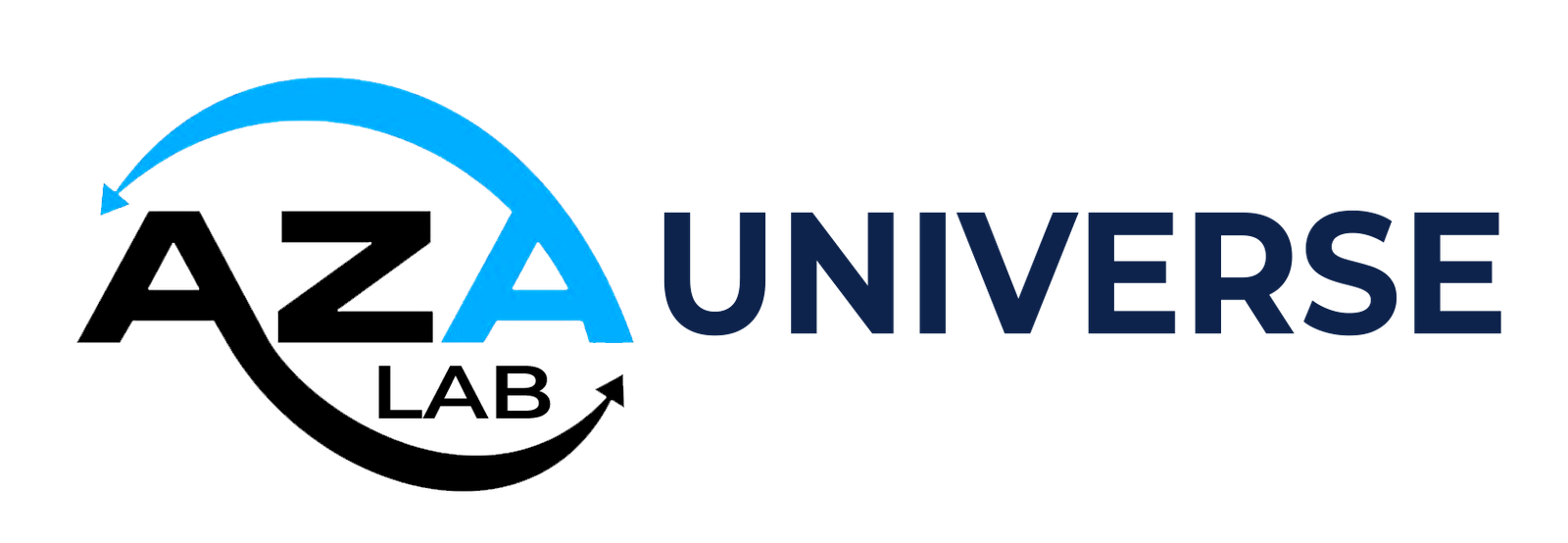AZA 1010 TORSION TESTING MACHINE
- AZA 1010 Torsion Testing Machine: Measures material response to twisting forces (torque).
- Determines torsional strength, shear modulus, and ductility in torsion.
- Features high-precision torque transducer and angle encoder.
- Digital display for real-time torque and angle of twist readings.
- Complies with ASTM E143, ASTM A938, ISO 7881 standards.
- Essential for testing shafts, wires, fasteners, and other components under shear.
- Robust construction with versatile gripping system.
- Available in various torque capacities and test modes.
Description
AZA 1010 Torsion Testing Machine: Unveiling Material Behavior Under Twisting Loads by Azalab
The Azalab AZA 1010 Torsion Testing Machine is a specialized and critical instrument designed for precisely evaluating a material’s response to twisting forces, known as torque . This test is fundamental for understanding torsional strength, shear modulus (modulus of rigidity), yield strength in shear, and ductility in torsion. It’s especially crucial for materials and components that experience rotational or shear stresses in their operational environment, such as shafts, wires, fasteners, springs, and medical devices. The AZA 1010 offers accurate torque and angle-of-twist measurement, making it an indispensable tool for quality control, product development, and research in manufacturing, automotive, aerospace, and academic sectors across India and globally.
The Dynamics of Torsion with the AZA 1010 Torsion Testing MachineAZA 1010 Torsion Testing Machine, Azalab, torsion testing, torsional strength, shear modulus, angle of twist, material testing, ASTM E143, ISO 7881
Torsion testing involves applying a pure twisting moment (torque) to a specimen and measuring its resistance to this twisting and the resulting angular deformation. The fundamental principle of the AZA 1010 Torsion Testing Machine involves:
- Specimen Clamping: A cylindrical or tubular specimen (or other standardized shape) is securely clamped at both ends in specialized chucks or grips.
- Fixed End: One end of the specimen is held fixed to a torque measuring device (load cell).
- Rotating End: The other end is subjected to a controlled rotational motion, applying increasing torque.
- Data Measurement: The machine simultaneously measures the applied torque and the angle of twist (angular deformation) generated along the length of the specimen.
- Failure Analysis: The test continues until the specimen fractures or reaches a predetermined angle of twist. The data collected (torque vs. angle of twist) can then be converted into shear stress vs. shear strain, allowing for the determination of critical material properties under torsional loads, including:
<!– end list –>
- Torsional Strength (Ultimate Torsional Strength): The maximum shear stress a material can withstand before fracture.
- Shear Modulus (Modulus of Rigidity, G): A measure of the material’s elastic stiffness in shear, indicating its resistance to elastic twisting deformation.
- Yield Strength in Shear: The shear stress at which the material begins to deform plastically in torsion.
- Ductility in Torsion: Indicated by the total angle of twist before fracture.
This comprehensive evaluation helps engineers select appropriate materials for components designed to transmit power or resist twisting forces, ensuring their long-term performance and safety.
Key Features of the AZA 1010 Torsion Testing Machine for Precision and Versatility: The Azalab AZA 1010 Torsion Testing Machine is engineered for accuracy, robustness, and user-friendly operation:
- Rigid Load Frame: Constructed with a robust and stable frame to ensure accurate force application and minimize any extraneous movements during the test.
- High-Precision Torque Transducer: Equipped with a highly accurate electronic torque load cell for precise measurement of the applied twisting moment, often with high resolution and accuracy.
- Accurate Angle Encoder: Features a high-resolution rotary encoder for precise measurement of the angle of twist, providing reliable strain data.
- Digital Readout: Incorporates a digital display for real-time display of torque, angle of twist, and calculated parameters. More advanced models may offer PC connectivity for comprehensive data acquisition.
- Variable Speed Drive: A precisely controlled motorized drive system allows for various test speeds, accommodating different material behaviors and test standards.
- Versatile Gripping System: Comes with a set of self-centering chucks or specialized grips capable of securely holding a wide range of specimen shapes (round bars, wires, flat strips with adapters, fasteners) and diameters without slippage.
- Automatic Overload Protection: Built-in safety mechanisms to protect the load cell and the machine from excessive torque, preventing damage.
- Software for Analysis (Optional/Advanced Models): For higher-end configurations, dedicated software provides capabilities for test setup, real-time plotting of Torque vs. Angle of Twist curves, calculation of shear stress-strain, shear modulus, yield points, and comprehensive report generation.
- Manual/Motorized Operation: Depending on the model variant, operation can be manual for simpler tests or motorized for automated, controlled testing.
Diverse Applications and Standards Compliance in the Indian Context: The Azalab AZA 1010 Torsion Testing Machine is a vital instrument across various industries and research fields in India and globally:
- Automotive: Testing drive shafts, axles, steering components, and torsion bars.
- Aerospace: Evaluating control rods, wing components, and fasteners.
- Medical Devices: Testing surgical instruments, implants, and catheters for torsional integrity.
- Spring Manufacturing: Assessing the torsional properties of wire used in springs.
- Building & Construction: Testing reinforcing bars and structural connectors.
- Research & Development: Material characterization, development of new alloys, and evaluation of manufacturing processes.
- Quality Control: Ensuring that components meet torsional strength and ductility specifications.
The AZA 1010 is designed to facilitate tests in accordance with relevant national and international standards, ensuring the reliability and comparability of results:
- ASTM E143: Standard Test Method for Shear Modulus at Room Temperature.
- ASTM A938: Standard Test Method for Torsion Testing of Wire.
- ISO 7881: Steel wire for mechanical springs – Torsion test.
- Other specific industry or material standards that require torsional property determination.
Azalab’s Commitment to Quality and Support: Azalab is dedicated to providing high-quality, precise laboratory and industrial equipment that supports critical material characterization and quality control. The AZA 1010 Torsion Testing Machine reflects our commitment to innovation, accuracy, and user satisfaction. We understand the paramount importance of reliable torsional data in ensuring product performance and safety, especially for components subjected to twisting forces. Our instruments are engineered to meet the stringent demands of modern testing laboratories in India and globally, backed by comprehensive customer support and service.
Further Information and Resources: For detailed operational procedures, specific specimen preparation guidelines, and in-depth software functionalities, users should refer to the product manual, relevant industry standards, and consult with Azalab’s technical support team.
Specifications:
- Model: AZA 1010
- Machine Type: Torsion Testing Machine
- Loading Principle: Electromechanical (Motorized) or Manual.
- Torque Capacity: Available in various capacities (e.g., 50 Nm, 100 Nm, 200 Nm, 500 Nm, 1000 Nm, 2000 Nm, etc.) – Specify based on actual product range.
- Torque Measurement: High-precision Electronic Torque Transducer/Load Cell.
- Torque Accuracy: Typically ±1% of indicated load (or better, as per standard).
- Angle of Twist Measurement: High-resolution Rotary Encoder.
- Angle Resolution: Typically 0.1 degree or finer.
- Testing Speed: Variable speed control (e.g., 0.1 to 10 RPM or higher for motor driven models).
- Specimen Grips: Self-centering chucks (3-jaw or 4-jaw) for round specimens, or specialized grips for other shapes/fasteners.
- Max. Specimen Length: [Specify typical range, e.g., 200 mm to 1000 mm].
- Specimen Diameter Range: [Specify typical range, e.g., 3 mm to 25 mm for standard models].
- Display: Digital display for Torque and Angle of Twist.
- Software (Optional/Advanced Models): PC-based software for real-time data plotting (Torque-Angle, Shear Stress-Strain), analysis, and report generation.
- Safety Features: Overload protection, emergency stop.
- Power Supply: 230V AC, 50/60 Hz, Single Phase.
- Dimensions (Approx.): Varies by capacity and frame type.
- Weight (Approx.): Varies significantly by capacity.
- Standards Compliance: ASTM E143, ASTM A938, ISO 7881, and other relevant industry/material standards.
- Country of Origin: Made in India.
FREQUENTLY ASKED QUESTIONS (FAQ):
- Q: What is the main purpose of the AZA 1010 Torsion Testing Machine?
- A: It’s used to measure a material’s response to twisting forces (torque) and its resulting angular deformation, determining properties like torsional strength and shear modulus.
- Q: What types of materials or components can be tested?
- A: It can test various materials including metals (wires, bars, shafts), plastics, composites, and finished components like fasteners, springs, and medical devices.
- Q: What key data points are obtained from a torsion test?
- A: Applied torque, angle of twist, torsional strength, shear modulus, and ductility in torsion are key parameters.
- Q: Does the AZA 1010 provide digital readings?
- A: Yes, it typically features a digital display for real-time torque and angle of twist readings. Advanced models may integrate with PC software.
- Q: What standards does the AZA 1010 comply with?
- A: It facilitates tests according to standards like ASTM E143, ASTM A938, and ISO 7881, among others.
- Q: What is the significance of the shear modulus?
- A: The shear modulus (G) is a fundamental material property that indicates its stiffness or resistance to elastic deformation under shear (twisting) stress.
Additional information
| Model |
AZA 1010 |
|---|---|
| Machine Type |
Torsion Testing Machine |
| Loading Principle |
Electromechanical (Motorized) or Manual |
| Country of Origin |
Made in India |
| Angle Resolution |
Typically 0.1 degree or finer |
| Display |
Digital display for Torque and Angle of Twist |
Related products
AZA 1009 HYDRAULIC COMPUTERIZED UTM
- AZA 1009 Hydraulic UTM: High-capacity Universal Testing Machine.
- Servo-hydraulic system for precise force and displacement control.
- Computerized control with comprehensive software.
- Tests tensile, compression, bending, and shear strength.
- Complies with ASTM and ISO standards.
- Essential for testing large metallic specimens, concrete, and structural components.
- Robust and reliable for demanding industrial applications.
- Available in various force capacities
AZA 1011 ROCKWELL HARDNESS TESTER
AZA 1012 BRINELL HARDNESS TESTER
- AZA 1012 Brinell Hardness Tester: For accurate Brinell hardness measurement.
- Robust design for reliable testing.
- Wide force range and standard indenters.
- Available with optical or digital indentation measurement.
- Complies with IS 1500, ASTM E10, and ISO 6506-1.
- Essential for quality control of metallic materials.
- Suitable for testing non-homogeneous materials and large components.
AZA 1013 CHARPY IMPACT TESTER
- AZA 1013 Charpy Impact Tester: Measures material toughness and resistance to brittle fracture.
- Pendulum-type tester with robust construction for stability.
- Available with high-resolution analog or digital energy display.
- Complies with key Indian (IS 1757) and International (ASTM E23, ISO 148-1) standards.
- Essential for quality control of metals, alloys, and critical components.
- Features precise hammer, anvils, and safety braking system.
- Helps assess ductile-to-brittle transition temperature.
AZA 1015 TENSILE TESTING MACHINE
- AZA 1015 Tensile Testing Machine: Advanced UTM for material characterization.
- Precisely measures tensile strength, yield strength, and elongation.
- Features high-precision load cell and digital control.
- Variable crosshead speeds for diverse material testing.
- Complies with major standards: IS 1608, ASTM E8, ISO 6892, etc.
- Includes user-friendly software for data analysis and reporting.
- Essential for quality control, R&D, and failure analysis across industries.
- Robust construction ensures reliable and repeatable results.
AZA 1016 METALLURGICAL INVERTED MICROSCOPE
- AZA 1016 Metallurgical Inverted Microscope: For precise inspection of opaque materials.
- Inverted design ideal for large, heavy, or irregular samples.
- High-quality infinity-corrected LWD metallurgical objectives (20x-1000x).
- Powerful Epi-Illumination (Halogen/LED) with Koehler setup.
- Robust mechanical stage and precise coaxial focusing.
- Trinocular head for camera attachment, enabling image capture.
- Essential for metallography, quality control, and R&D in materials science.
- Manufactured with durable die-cast aluminum stand
AZA 1017 DOUBLE DISC POLISHING MACHINE
- AZA 1017 Double Disc Polishing Machine: For superior metallurgical specimen finishing.
- Features two independent polishing discs for efficiency.
- Individual variable speed control for optimal results.
- Robust, corrosion-resistant construction with integrated water cooling.
- Achieves mirror-like, scratch-free surfaces for microstructural analysis.
- Essential for quality control, R&D, and failure analysis in materials industries.
- Enhances efficiency and reproducibility in sample preparation.
AZA 1018 SPECIMEN MOUNTING PRESS
- AZA 1018 Specimen Mounting Press: Essential for metallographic sample preparation.
- Robust manual hydraulic press for hot mounting.
- Features integrated electrical heating (up to 200°C) and water cooling.
- Digital temperature control for precise curing.
- Compatible with various interchangeable mold sizes (e.g., 25mm, 30mm, 40mm).
- Ensures consistent, void-free, and perfectly shaped mounts.
- Crucial for quality control, failure analysis, and research in materials science.

 Rock
Rock Aggregate
Aggregate Cement
Cement Concrete
Concrete Soil
Soil Steel
Steel Bitumen/Asphalt
Bitumen/Asphalt Security Survey Equipment
Security Survey Equipment General Items
General Items









